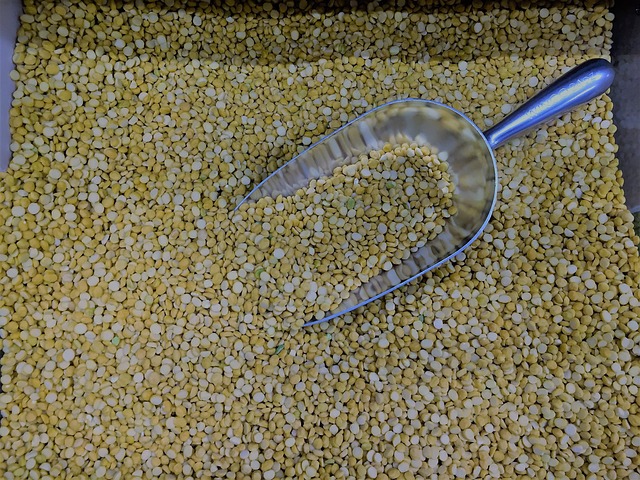September 21, 2017
Hollywood director James Cameron and his wife, Suzy Amis Cameron, announced the formation and launch of Verdient Foods – the largest organic pea protein facility in North America.
Cameron declined to disclose the amount of the investment behind the launch of the company, but told the National Post, “It’s big, but we believe more than worth it or we’d be dumb.”
The plant will be located in Vanscoy, Saskatchewan, and once fully online, will have a capacity of 160,000 tons, making it the largest facility of its kind on the continent.
A native of Canada and born in Ontario, Cameron, who grew up milking cows on his grandfather’s farm, is now vegan and a proponent for the reduction in the consumption of meat.
“But what medical science and environmental science is showing us now, that collectively, globally, we’ve got to eat a lot less meat and consume a lot less dairy simply because of the efficiency of getting protein off of an acre of land … ,” said Cameron. “So if we’re going to feed the world as the population grows toward, call it nine billionish, we need to change our consumption patterns and that’s already happening.”
The project is being founded through partnerships with PIC Investment Group Inc., the Whitecap Dakota First Nation of Saskatchewan, and the Food Industry Development Center, with which the Camerons have entered into a four-year research partnership to develop value-added organic food products to be produced by Verdient Foods.
“Ideally, we want to set up a business model where the organic premium that’s paid by consumers now (is passed) up the chain to the producer,” Cameron said at a press conference on September 19, reports Farms.com.
“For years, we’ve been on a mission to help the world eat healthy food grown by farmers who have chosen to farm organically,” said Suzy Amis Cameron. “Jim and I are thrilled to work with Saskatchewan experts at the Food Centre, the University of Saskatchewan, and the Whitecap Dakota First Nation; all of whom have long been supporters of the mission to bring healthy food to all.”
The Peas’ Knees
Although Verdient will be the largest pea protein plant when it becomes operational, it may not hold the title for long.
Just over the border in Manitoba, the establishment of another, even bigger pea protein plant is underway through a project backed by the French specialty ingredient supplier Roquette. In January of this year Roquette announced it was investing C$400 million (US$300 million) – the largest pea protein investment in the sector to date, for the construction of a pea protein facility in Portage la Prairie which is scheduled to be completed in 2019.
Additionally, the National Post reports that the German-owned Canadian Protein Innovation announced a C$100 million investment of its own to build yet another pea protein plant in Moose Jaw, Saskatchewan.
Why Peas, Why Canada?
Global protein consumption is expected to climb at a CAGR of 1.7 percent, reaching 943 million tons by 2054, according to Lux Research. Over this same time period, alternative plant-based protein sources are forecast to command up to a third of the protein market as they fill the void created by slowing growth in meat and seafood production. Of these plant-based alternative protein sources, peas offer an additional benefit and appeal to consumers due to the fact that, unlike soy, they are not one of the major allergens and are not genetically modified.
And if you guessed that Canada is the largest producer of peas in the world, you’d be correct. Canada has built pulse production into a multi-billion industry, and now accounts for approximately 30 percent of total global production of peas.
Saskatchewan also has been very open to working with the Camerons to see Verdient come to reality.
“We want to welcome James and Suzy Amis Cameron to Saskatchewan, and express our deepest gratitude for their investment in Verdient Foods and their partnerships with the Saskatchewan Food Industry Development Centre, the Whitecap Dakota First Nation and its First Nation leader, Chief Darcy Bear,” Premier Wall said. “Saskatchewan agriculture is feeding the world while creating jobs and opportunity at home. The Camerons’ decision to move forward with this project in Saskatchewan is a tribute to the province’s grain producers, our growing food processing industry, and our world leading research community.”
Investments in other pea-protein focused startups have also been increasingly on the radar.
In October 2016, New York-based pea protein snack chip startup, Proformance Foods, raised $1.2 million in a round led by “one of the 10 largest CPG companies in the world.” And earlier in the year, Google Ventures led a $30 million Series B for Ripple Foods, a producer of a pea-based milk alternative that provides eight times the protein of almond or rice-based dairy alternatives and half the sugar content of cow’s milk. Other investors involved in the round included Prelude Ventures, Tao Capital Partners, Tim Koogle, Khosla Ventures, S2G, Collaborative Fund, Blueberry Ventures, Seth Goldman, and Radicle Impact.
-Lynda Kiernan

Let GAI News inform your engagement in the agriculture sector.
GAI News provides crucial and timely news and insight to help you stay ahead of critical agricultural trends through free delivery of two weekly newsletters, Ag Investing Weekly and AgTech Intel.




